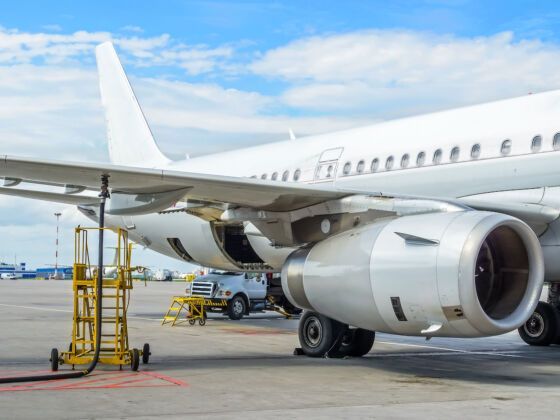Human waste isn’t typically considered particularly useful, but when it comes to fueling airplanes, it might actually be a game-changer. According to researchers, discarded “wet waste” materials — organic waste including human waste, animal manure, and wastewater sludge, Inverse explains — can be converted into biofuel to power jets.
The research team led by the US National Renewable Energy Laboratory published a study in the journal Proceedings of the National Academy of Sciences, describing how to convert wet waste into paraffin, which is used in aviation fuel. Their findings could make it easier to power jets with greener, more eco-friendly fuel.
